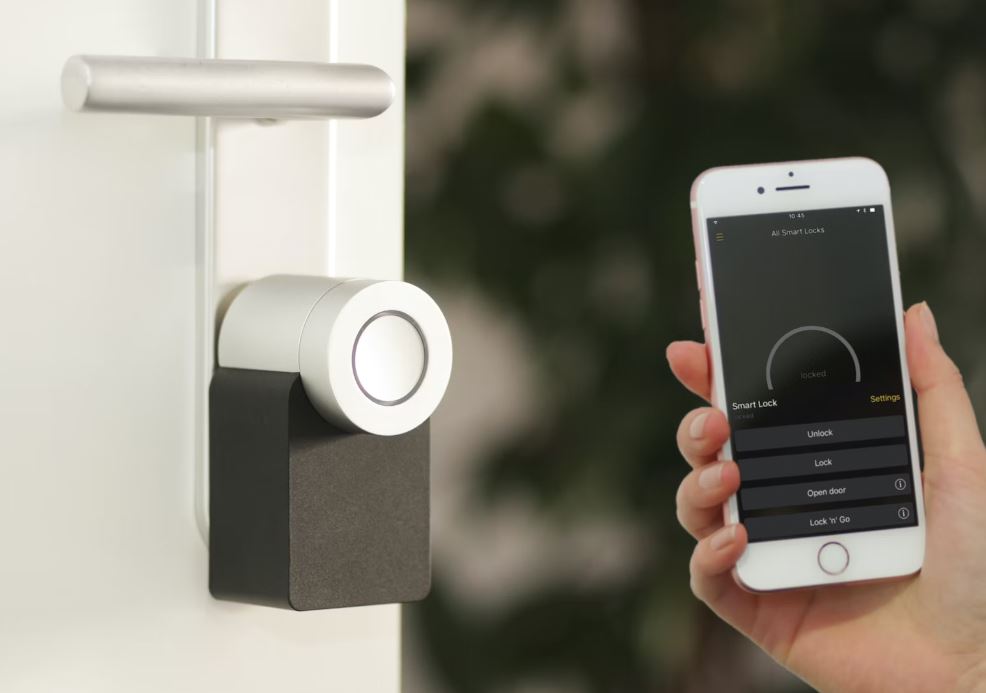In today’s fast-paced world, managing our homes efficiently and securely has become a top priority. Whether it’s granting access to family members, friends, or service providers, or monitoring who enters and exits our homes, having control over home access is crucial. Thanks to advancements in technology, managing home access remotely has become easier than ever before. In this blog post, we will discuss the benefits and features of remote home access control.
What is Remote Home Access Control?
Remote home access control is a system that lets you manage access to your home from anywhere at any time. A critical component of this system is Smart Locks. Smart locks provide a keyless entry solution, enabling homeowners to unlock or lock their doors using a mobile app or through voice commands with a compatible device. Not only can you control access to your home remotely, but also monitor who comes and goes in real time, providing an extra layer of security and convenience.
Furthermore, with features like temporary virtual keys and automatic locking, you can grant access to guests or service workers even when you’re not at home. These locks are easy to install, user-friendly, and integrate seamlessly with other smart home devices.
How Does it Work?
Remote home access control relies on a combination of hardware and software components. The system typically includes smart locks, keyless entry systems, security cameras, and a mobile app or web interface for control and monitoring.
To set up remote home access control, you need to install compatible smart locks or keyless entry systems on your doors. These locks can be connected to your home network via Wi-Fi or a dedicated hub. Once connected, you can use a mobile app or website to control and monitor the locks and other access devices.
Benefits of Remote Home Access Control
- Convenience: One of the primary advantages of remote home access control is convenience. No matter where you are, you can easily grant access to family members, friends, or trusted individuals. You no longer need to rush home to let someone in or worry about leaving spare keys outside.
- Enhanced Security: Remote access control provides an extra layer of security by allowing you to monitor and control who enters your home. You can receive real-time notifications when someone unlocks a door or enters your property, giving you peace of mind and the ability to take immediate action if necessary.
- Temporary Access: With remote access control, you can grant temporary access to individuals who need to enter your home temporarily, such as house cleaners, pet sitters, or delivery personnel. You can set specific timeframes during which they can access your home and revoke their access once their task is complete.
- Integration with Other Smart Devices: Remote access control systems often integrate with other smart home devices, such as security cameras, doorbell cameras, and alarm systems. This integration allows you to have a comprehensive view of your home’s security and control all aspects from a single platform.
- Activity Logs: Remote access control systems keep a record of all access events, including who unlocked a door and when. These activity logs can be useful for monitoring entry and exit times, identifying any suspicious activity, or simply keeping track of who comes and goes.
Considerations and Limitations
While remote home access control offers numerous benefits, there are a few considerations to keep in mind:
- Internet Connectivity: Remote access control systems rely on an internet connection to function properly. Ensure that you have a stable and reliable internet connection for uninterrupted control and monitoring.
- Cybersecurity: As with any connected device, remote access control systems can be susceptible to cybersecurity threats. It’s important to choose reputable brands, regularly update firmware, and follow best practices for securing your network and devices.
- Power Outages: In the event of a power outage, remote access control systems may lose functionality temporarily. Some smart locks have backup power options, such as battery backups or physical key overrides, to ensure access during power outages.
- Compatibility: Not all smart locks or keyless entry systems are compatible with remote access control platforms. When choosing a system, ensure that it is compatible with the specific features and capabilities you require.
Managing home access remotely provides convenience, enhanced security, and peace of mind. With the ability to control and monitor access to your home from anywhere using a mobile app or website, you can ensure that only authorized individuals enter your property. Additionally, remote access control systems often integrate with other smart home devices, allowing for a comprehensive approach to home security. As technology continues to advance, remote home access control is becoming more accessible and user-friendly, making it an increasingly popular choice for homeowners seeking to manage their homes efficiently.


